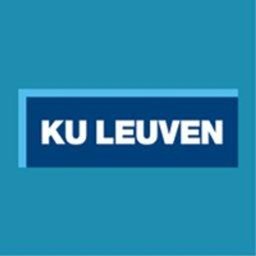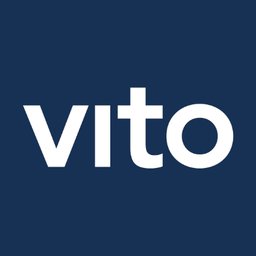PhD Position on lifetime aware operations and wind farm control
(ref. BAP-2025-338)
Laatst aangepast: 09/06/25
Laatst aangepast: 09/06/25
This PhD position is supervised by Prof. Johan Meyers and hosted in the Turbulent Flow Simulation and Optimization (TFSO) research group at the department of Mechanical Engineering. The research is part of the project “Addressing Impacts of Changing Climates and Energy Markets on Offshore Wind Farms (ACCEMO)” led by Prof. Nicole van Lipzig (KU Leuven), Prof. Erik Delarue (KU Leuven), Prof. Jan Helsen (VUB), and Prof. Johan Meyers (KU Leuven). The research is also integrated into the broader wind-farm control research of the TFSO group at KU Leuven. Currently, various other projects on wind farm planning and control are ongoing, allowing for vivid interactions with many researchers in the same team at one of the leading research institutes on wind farms worldwide.
Project
BACKGROUND
Europe aims at massive investments in wind energy, with over 300 GW offshore developments by 2050. Much of these installations will be in the North-Sea basin, where the combination of excellent wind conditions and an abundance of sand banks provides favorable conditions for bottom fixed wind farms. At this scale of development, wind farms start to mutually interact through farm wakes that can extend for 50km and more. In fact, recent climate simulations have found significant uncertainty on North-Sea wind conditions induced by unknown offshore development scenarios, much larger than, e.g., the uncertainty introduced by climate change. At a time when the business model of wind energy is becoming subsidy free, this leads to large uncertainties in planning and development, but also significant trends in both energy yields, and market prices over the life time of a wind farm are expected as a result of climate change and increased penetration of renewable energy in the overall energy system. Consequently wind-farm control and operations should adapt to these trends over the wind-farms life time, leading to a robust optimal control problem (over the wind farms life time) in which operations and wind-farms control need to be jointly addressed.
Europe aims at massive investments in wind energy, with over 300 GW offshore developments by 2050. Much of these installations will be in the North-Sea basin, where the combination of excellent wind conditions and an abundance of sand banks provides favorable conditions for bottom fixed wind farms. At this scale of development, wind farms start to mutually interact through farm wakes that can extend for 50km and more. In fact, recent climate simulations have found significant uncertainty on North-Sea wind conditions induced by unknown offshore development scenarios, much larger than, e.g., the uncertainty introduced by climate change. At a time when the business model of wind energy is becoming subsidy free, this leads to large uncertainties in planning and development, but also significant trends in both energy yields, and market prices over the life time of a wind farm are expected as a result of climate change and increased penetration of renewable energy in the overall energy system. Consequently wind-farm control and operations should adapt to these trends over the wind-farms life time, leading to a robust optimal control problem (over the wind farms life time) in which operations and wind-farms control need to be jointly addressed.
PHD PROJECT DESCRIPTION
The research aims at the development of a robust optimal control methodology that couples existing turbine and farm wake models and turbine component lifetime models, and takes into account expected trends in climate change and energy prices over the wind-farm’s life time. To this end, existing wind-farm engineering models such as WAYVE (https://gitlab.kuleuven.be/TFSO-software/wayve) from the group of J. Meyers are combined with climate change scenarios and market scenario’s developed by other groups in the consortium. The research involves extensive Python code and optimization algorithm development, as well as supercomputing.
Profile
Candidates have a master degree in one of the following or related fields: fluid mechanics, aerospace engineering, mathematical engineering, mechanical engineering, or computational physics. They should have a good background or interest in wind energy, fluid mechanics, optimization, simulation, and programming (Fortran, C/C++, Python, …). Proficiency in English is a requirement. The position adheres to the European policy of balanced ethnicity, age and gender. Persons of all origins and gender are encouraged to apply.
Offer
Immediate start is possible. The PhD position lasts for the duration of four years, and is carried out at the University of Leuven. The candidate also takes up a limited amount (approx. 10% of the time) of teaching activities. The remuneration is generous and is in line with the standard KU Leuven rates. It consists of a net monthly salary of about 2400 Euro (in case of dependent children or spouse, the amount can be somewhat higher); social security is also included. Following Belgian law, the salary is automatically adjusted for inflation based on the smoothed health index.
Interested?
To apply, use the KU Leuven online application platform (applications by email are not considered). Applications should ideally include:
a) an academic CV and a PDF of your diplomas and transcript of course work and grades
b) a statement of research interests and career goals, indicating why you are interested in this position
c) a sample of technical writing in English, e.g. a paper with you as main author, or your bachelor or master thesis
d) preferably at least one recommendation letter
d) a list of at least two additional references (different from recommendation letters): names, phone numbers, and email addresses
e) preferably some proof of proficiency in English (e.g. language test results from TOEFL, IELTS, CAE, or CPE)
Please send your application as soon as possible. Apply by September 1st, 2025 at the latest
Starting Date: immediate start possible, preferably by November 1st 2025.
a) an academic CV and a PDF of your diplomas and transcript of course work and grades
b) a statement of research interests and career goals, indicating why you are interested in this position
c) a sample of technical writing in English, e.g. a paper with you as main author, or your bachelor or master thesis
d) preferably at least one recommendation letter
d) a list of at least two additional references (different from recommendation letters): names, phone numbers, and email addresses
e) preferably some proof of proficiency in English (e.g. language test results from TOEFL, IELTS, CAE, or CPE)
Please send your application as soon as possible. Apply by September 1st, 2025 at the latest
Starting Date: immediate start possible, preferably by November 1st 2025.
You can apply for this job no later than September 01, 2025 via the online application tool
KU Leuven strives for an inclusive, respectful and socially safe environment. We embrace diversity among individuals and groups as an asset. Open dialogue and differences in perspective are essential for an ambitious research and educational environment. In our commitment to equal opportunity, we recognize the consequences of historical inequalities. We do not accept any form of discrimination based on, but not limited to, gender identity and expression, sexual orientation, age, ethnic or national background, skin colour, religious and philosophical diversity, neurodivergence, employment disability, health, or socioeconomic status. For questions about accessibility or support offered, we are happy to assist you at this email address.
Heb je een vraag over de online sollicitatieprocedure? Raadpleeg onze veelgestelde vragen of stuur een e-mail naar [email protected]
av_timer
Tewerkstellingspercentage: Voltijds
location_city
Locatie: Leuven
timer
Solliciteren tot en met:01/09/2025 23:59 CET
bookmarks
Tags: Werktuigkunde
Report job

